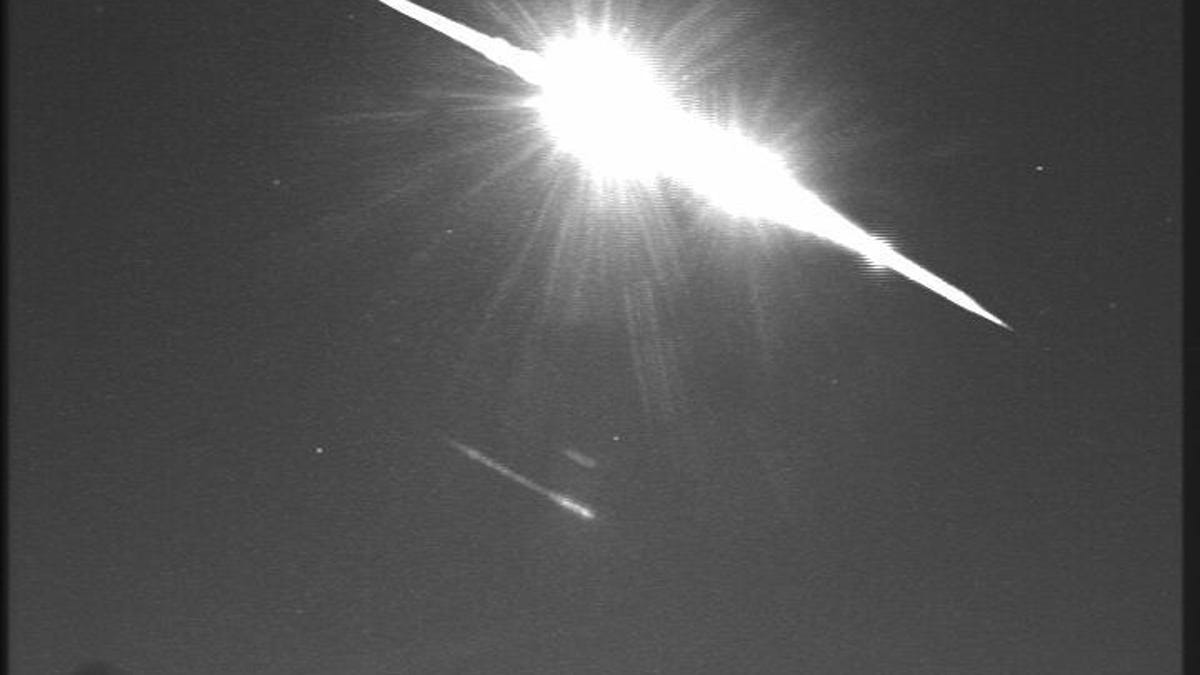See the wildly bright fireball meteor that lit up the UK sky on Sunday
A slow-moving flash of light appears to have originated from an asteroid and may have left meteorites behind.

The UK Meteor Network caught a view of the spectacular Feb. 28, 2021 fireball from a vantage point in England.
Humans have spent centuries developing ever-more-spectacular fireworks, but it's still hard to compete with what space can throw at us. Observers in parts of the UK witnessed an eye-opening show when a massive, slow-moving fireball made its way across the night sky late Sunday.
The UK Meteor Observation Network (Ukmon), a citizen science group that tracks meteor sightings, said it received over 800 eyewitness reports and doorbell and dashcam videos of the fireball. "Surprisingly many people reported hearing either a sonic boom or a rumbling noise," the organization said in a statement on Monday.
A Ukmon camera in Wilcot, Wiltshire, captured the bright fireball in action as it shot across the sky.
The stunning meteor may have left some debris on the ground. The UK Fireball Alliance (UKFall), a group led by Natural History Museum staff, ran the numbers and mapped out where meteorites might have landed across England, and particularly near the Cheltenham area.
Initial data suggests the fireball over England on Feb. 28, 2021 might have dropped meteorites within the red-lined area of this map.
Initial data suggests the fireball came from an asteroid. Ashley King of the Natural History Museum and UKFall calculated the object's speed at around 30,000 miles per hour, saying in a statement it was "too fast for it to be human-made 'space junk,' so it's not an old rocket or satellite."
In the UKFall statement, meteorite expert Katherine Joy of the University of Manchester delivered some tips for collecting meteorites: "If you do find a meteorite on the ground, ideally photograph it in place, note the location using your phone GPS, don't touch it with a magnet, and, if you can, avoid touching it with your hands." Joy recommends using a clean bag or aluminum foil for picking up a possible space rock.
UKFall has asked to be alerted if any suspected pieces of the fireball are found.
New footage of the #fireball tonight. Sent by Katie Parr pic.twitter.com/J4jmsM9tFj
— UK Meteor Network (@UKMeteorNetwork) February 28, 2021
Fantastic footage of last night's #fireball from Ben Stanley's https://t.co/eAMviWBAAV / https://t.co/1wOo3FHJ2u meteor camera in Nuneaton. (People, buy this camera!) The fireball may have dropped meteorites in Gloucestershire. @amsmeteors @UKMeteorNetwork @trilby pic.twitter.com/Q8XqkeopDC
— SCAMP - a component of the FRIPON network (@SCAMP_Meteors) March 1, 2021
Videos of the fireball appeared across social media and UKFall said it could break records as one of the most reported meteors on the International Meteor Organization's website. The meteor-tracking group has gathered over 950 reports of the event from as far away as the Netherlands and Ireland.
Meteors are common, but bright, slow fireballs like this one are a rarer sight. If meteorites are found, our visitor will have left behind some souvenirs of its spectacular demise.

